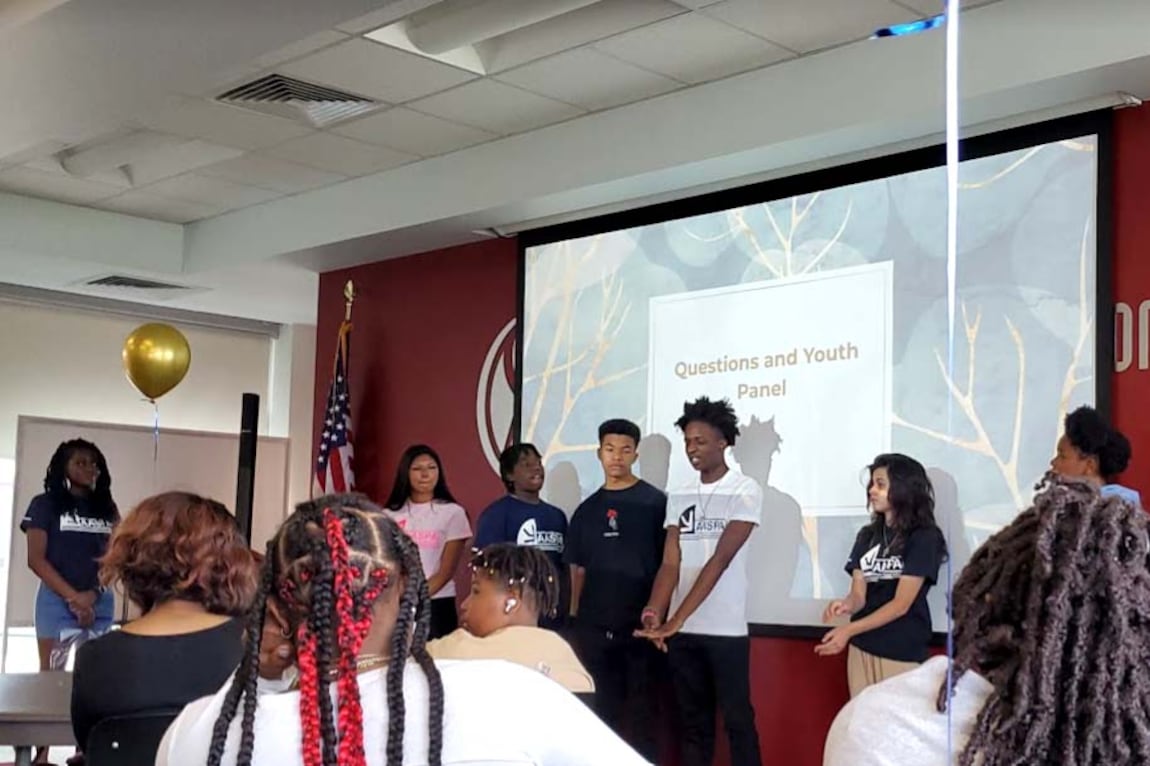Students may be the people with the most at stake in any school board election, but most of them can’t vote.
For youth leaders with YAASPA — Young Aspiring Americans for Social and Political Activism — that’s all the more reason to ask candidates’ hard questions and push for real answers.
“Potential candidates for the school board hold a lot of power. They’re involved in making very pivotal changes that affect both staff and youth,” said Jason Hoang, a youth leader with YAASPA and a graduate of Aurora’s Hinkley High School who now attends the University of Southern California.
YAASPA youth have been organizing and leading candidate workshops since 2017, starting in Aurora. This year, they’re holding workshops in Aurora on Wednesday, in Denver on Oct. 20, and in the Cherry Creek School District on Oct. 25. Community members can attend virtually.
When Hoang first got involved in organizing an Aurora candidate workshop in 2021, he didn’t know much about the school board, but he did know that changing anything significant would probably have to go through them.
“Most concerns are coming from the voices of youth,” he said, “but if they don’t even know who their school board is, how can they convey their concerns to the school board?”
In the months leading up to the workshops, youth leaders research the candidates and how their school board could influence the issues they care about, such as better academic resources for their schools, diverse curriculum, retaining educators of color, and student mental health.
By design, these events are not debates or forums. The format encourages interaction between students and potential school board members rather than arguments between the candidates. Some questions are fun and spontaneous, designed to help the candidates relax and be themselves. Others are specific to the candidates, their proposals, and their approach to the job.
Sakari Mackey, a senior at Cherokee Trail High School, said students want to get a feel for why the person wants to be a school board member. What drives them to do the work and what is their purpose?
Mackey said she wants to see how candidates will connect with families and students and prioritize student needs.
“I feel like oftentimes, we’re only focusing on the schools and what the principal needs as opposed to what the students’ needs are and how the school can provide for the students,” she said.
Candidates are often eager to participate, said Ameya Kamani, a graduate of the Cherry Creek district who now attends Cornell University, but they are sometimes thrown off when students enforce the format and time limits. When the candidates can’t give their rehearsed speeches, they are less polished, he said, but they’re also more authentic.
The questions young people have for school board members are sometimes different than those adults ask. Students care about getting a good education, Hoang said, but talking about test scores feels dehumanizing, especially for students who attend schools that have been labeled as bad.
“The lack of resources is usually dismissed,” he said. “But I think that it’s somewhat traumatizing, just being so driven in school, but not being given the resources to fully succeed.”
School safety, the presence of school resource officers, mental health support, and curriculum are all important issues for students, YAASPA youth leaders said. So is supporting teachers so they can do their best work. They also want elected officials who will treat students like real constituents with valid concerns that deserve attention.
“We have always had a goal as an organization to not just be civically engaged but have a mechanism to build relationships with people who desire to govern,” said YAASPA co-founder and CEO Janiece Mackey. “We have to stop romanticizing youth voice and civic engagement and be in partnership with them and honor their labor.”
Hoang said the experience of organizing the workshops have made him and his peers more informed, sophisticated voters in national elections. Kamani said it helped him talk to his immigrant parents about what a school board does and why they should vote.
Sakari Mackey, Janiece Mackey’s daughter, is excited to vote in her first election this fall.
“These quote-unquote small elections, they do matter because those small policies will directly affect you and your students and your kids,” she said.
Correction: This article has been updated to reflect that Sakari Mackey attends Cherokee Trail High School. A previous version named the wrong school.
Bureau Chief Erica Meltzer covers education policy and politics and oversees Chalkbeat Colorado’s education coverage. Contact Erica at emeltzer@chalkbeat.org.





